- Highlights
- Programme inspiration
- Group projects
- Typical day
- Other areas to get involved with
- Programme Costs
- Have fun being productive and learning new skills.
- Experience the Spanish way of life and enjoy daily summer siestas.
- Challenge and push yourself through your comfort zones.
- Look at the needs of nature, the land, and the horses and learn to problem solve to ensure sustainability.
- Make memories you’ll never forget during your trip with your fellow participants.
This volunteer program is especially suitable for:
Age 10+
Groups of 8+
Group Experience Programme
This programme will give an opportunity for your group to be in the countryside, working alongside horses who are being handled with force-free techniques, whilst helping with day-to-day sanctuary maintenance and farm work.
Your group will receive day-to-day guidance through the tasks, learning how and why we carry out each one. Each member can also have the opportunity to learn how to make contact with the horses, and be with them without presenting as a threat.
During your stay, as well as the day-to-day helping hands, and a special group project/s, your group can take part in one force-free theory workshop and one scratch class per week to ten days. We look at how the horse perceives the human, and how we can change this to help us communicate and understand each other by responding appropriately rather than using force. This inevitably builds confidence in both horse and human and leads to more beautiful results.
Group projects usually involve planting, clearing, or building which form an essential part of our centre to aid sustainability, preventing erosion, and encouraging wildlife.
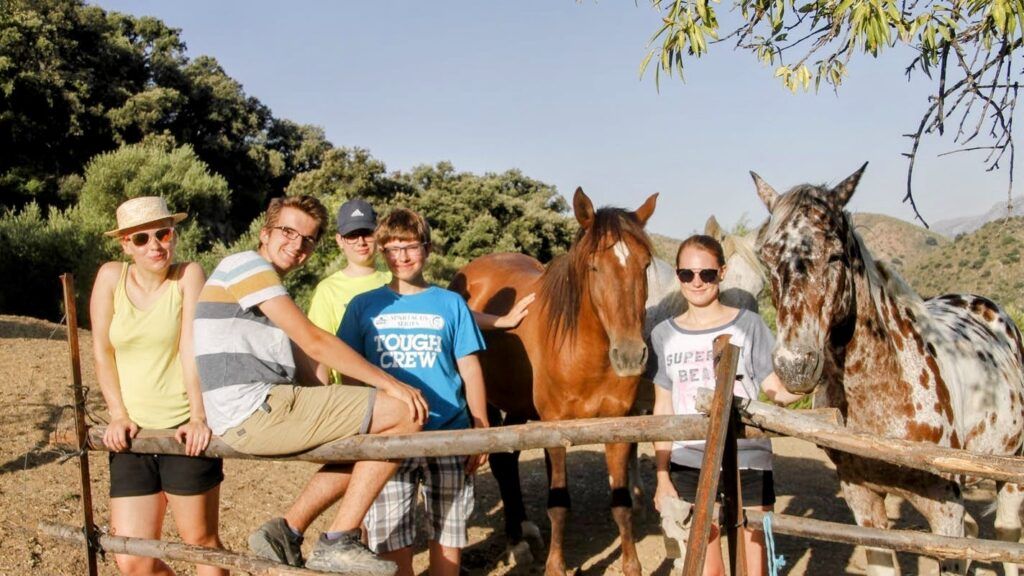
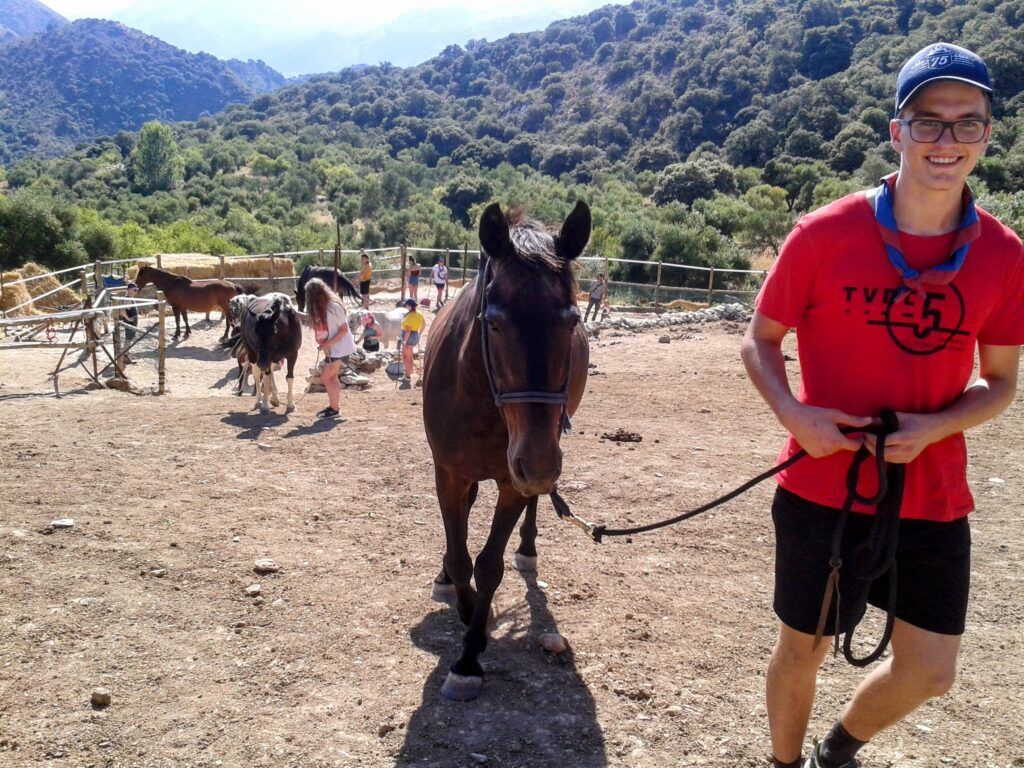
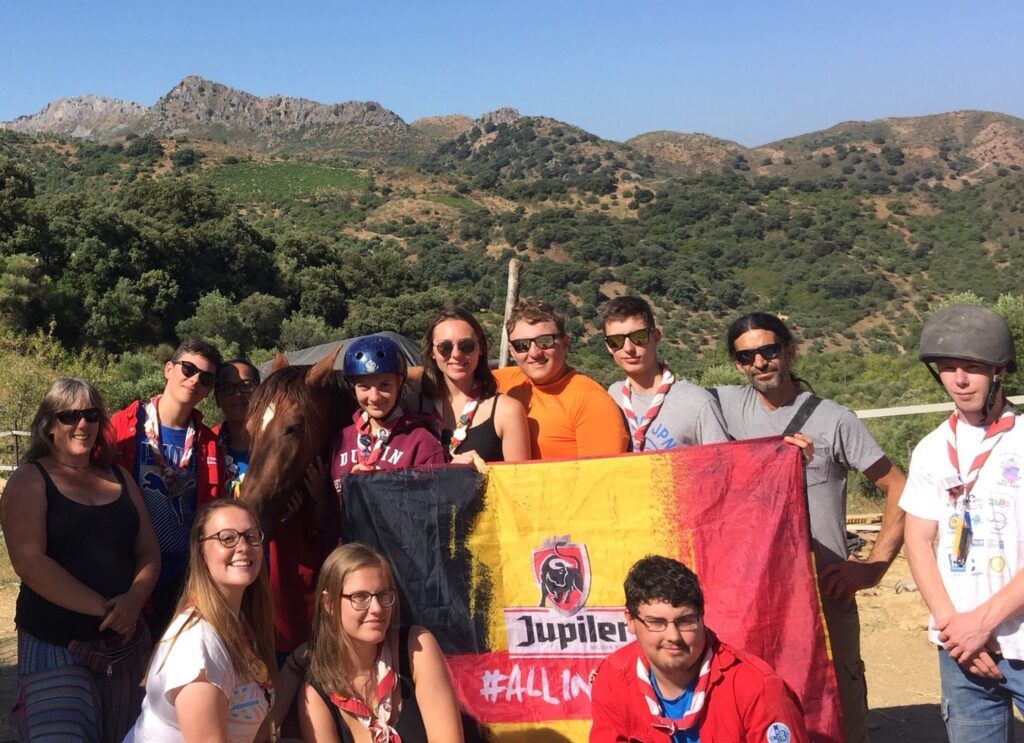
Domestic horse keeping can have a massive aversive effect on their emotional welfare and on the environment, when being kept in relatively small areas. As most people don’t have vast areas of land to offer their horses, it is imperative that we take inspiration from nature to learn how to recreate some natural elements so that the horses’ innate needs are met, whilst protecting the land against erosion and encouraging wildlife.
An increase in animal keeping, farming, and building development means that we need to put a conscious effort into the re-balance of nature for the future of our planet.
In the wild, the horse’s diet is much more varied than that of the domesticated horse. It would include shrubs, herbs and flowers of many types which usually are no longer available for either horse or insect. We aim to reintroduce these into our environment.
With clever design, we can recreate a little of nature within a restricted amount of land. This serves four main purposes:
- To protect the land from erosion – both for the land’s sake and so that the horses can enjoy it for much longer.
- To encourage insects which are imperative for healthy land.
- To provide the horses with more mental stimulation so they don’t get bored and frustrated.
- To allow physical movement for muscles, hoof growth and rehabilitation.
The south of Spain is very hot and dry, and each year we see less rainfall here. When we do get rain it often comes in sudden storms which cause flooding because the dry land cannot absorb it fast enough, and in turn this causes erosion and vast damage and fatalities.
Be a part of the change – many hands are needed!
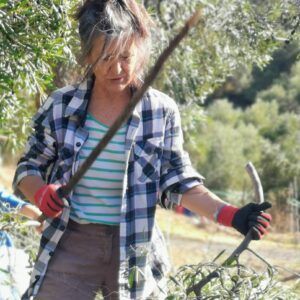 We will liaise with the group leader to organise a project which is suitable to your group and the needs of the sanctuary.
We will liaise with the group leader to organise a project which is suitable to your group and the needs of the sanctuary.
Possibilities will depend on the size of the group; finances; motivation; and seasonal or weather conditions.
Projects could be completed whole as a group, or can be divided into smaller groups. They can included building enrichment for the horses; fencing; clearing the land; and harvesting or gardening among other things.
Check out our Sanctuary pages for more information around our projects.
The following is just an example. Routines change seasonally and can also change daily, depending on what other commitments we may have.
First thing in the morning, the group will take a pretty fifteen minute walk from the village to the site. As you approach you will hear the horses calling for their breakfast as they sense the volunteers arriving.
You can breakfast early before you leave or take a break later for a picnic breakfast (you prepare this yourself). We are flexible!
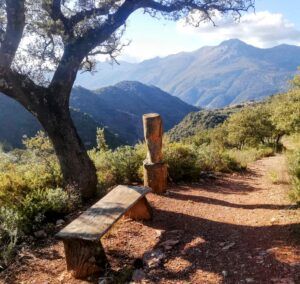
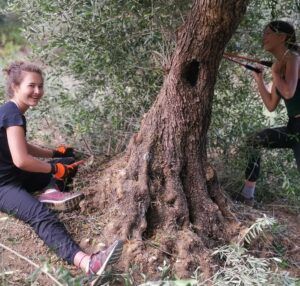
If your group is large we will split it into task groups. First you will take care of the animals, before assessing and designing the next step in our sustainability project. Or two groups can do this simultaneously, depending on the group size, then the following day you can swap.
We will share our knowledge and tips with you about working on the land here and we like to embrace the ideas and skills you may bring.
We will work for about five hours, with breaks, then your group can either stay to prepare lunch in the on-site outdoor kitchen or return to your accommodation.
In your spare time you can hike; rest; organise your own activities or day-trip; use the internet; read; socialise; go to the bar; listen to music; draw; cook; or visit the village pool which is open in July and August.
See the Practical Info below for more information about days off, food, and accommodation.
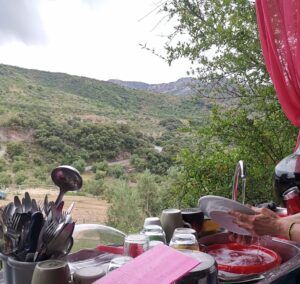
There are other areas that volunteers can get involved in, above and beyond the Equine and Sustainability programmes. These are not integral parts of the programmes, but we are really flexible and the level of involvement is at each volunteers’ discretion.
Food and Culture
Clare cooks balanced, healthy vegetarian meals and enjoys sharing ideas and skills with people that we can all enjoy! This is particularly satisfying when it is prepared with home-grown produce. Chico is also a wonderful cook with knowledge of many traditional Spanish dishes passed down through generations. Although day-to-day meals are ''do it yourself'', you are invited to join in cooking our favourite dishes or to share your own traditional dishes with us should you wish!
Language
In the house and while working, we speak a mixture of Spanish and English. We are happy to help and to correct both the written and spoken word. You can get practice in all areas of work and play. Most residents in the village only speak Spanish. You will be welcomed whether you speak Spanish or not, but can practice if you choose to with locals and other family members. Clare and Chico’s daughters Stella (2015) and Nora (2019) are both bilingual.
Building
As well as all the usual maintenance that comes with a farm, we are also building interesting enrichment opportunities for the horses and infrastructure for their humans. Depending when you join us this could be part of your programme anyway, but as we have many development opportunities in need of hands all year round, it would be great if you let us know if you have particular skills or interests in these areas.
Equine care and contact
If you are interested in making contact with the horses whilst you are here without actually joining the full Equine Programme, we can arrange a day where you will have the opportunity to learn how to do this. You will learn how to be with them without presenting as a threat. We look at how the horse perceives the human, and how we can change this to help us communicate and understand each other by responding appropriately rather than using force. This inevitably builds confidence in both horse and human and leads to more beautiful results. This is equally rewarding whether you have previous experience with horses or not.
GROUP EXPERIENCE PROGRAMME RECOMMENDED DONATION
- Groups of 1-7 people - please apply to our Sustainability or Equine programme
- Groups of 8- 35 people - 298€ per person, per week
- Please read the Practical Info section regarding the sleeping arrangements, and to see what is included in the programme and what is an extra cost.
The Group Experience programme is available all year round any start date, and any number of days, depending on existing bookings. Because of this flexibility you can choose cheaper flights or honor other commitments you may have at home.
Deposit (15%) to secure the accommodation.
Final payment (85%) will be due before four weeks of your arrival to allow us to prepare materials.
Once you have filled in a volunteer request form and received confirmation of date availability, you shall receive an email with payment details.
Our organisation is small and relies upon donations to be able to support volunteers and carry out our work. The recommended donation for people joining our programmes reflect the cost of their stay and materials needed for their projects.
Your donation is used for running the programmes; feeding the horses; veterinary and health care for the horses and any other animals; maintenance, materials and improvements for the horses’ living conditions and surrounding environment; insurance; and programme support – helping us complete our mission aims and objectives.
The price of the programme is a donation as we are a registered association, and it will be declared and used as such. Donations, payments, or deposits can not be refunded if you can not come or need to leave early. But you are welcome to join us at another time.
Practical info
- Requirements
- What is & isn´t included
- Accommodation & WiFi
- Food & cooking
- Project site conditions
- Freetime activities
- Weather
- Packing list
- Getting here
In order to join the programme you need to be at least 10 years old on the programme start date and have an accompanying adult/s. If you are aged 14 – 18 years you must have parental permission, and the parents must be confident in the applicant’s ability as the volunteers live independently and the hosts do not take parental responsibility.
Language Skills
You need to speak English (basic level) or Spanish (basic level). Communication day to day and around the village is never a problem, but some of the training within the programmes requires a lot of either English or Spanish. It is fine if your knowledge of those languages is basic, but your learning may be restricted.
Other Skills
You are not required to have previous experience with horses or farm work.
We are flexible and do like to make this opportunity available for everyone as we enjoy seeing people learn and develop. If you are an experienced horse person, then you will already know that you can never finish learning and that the horse is the best teacher of which we have plenty.
Work is often physically hard and although we welcome people from all experiences. A hard-working attitude fits best here. Please let us know before booking if you have specific needs or disabilities so we can discuss the possibilities.
You will be joining a family with animals and children. It is essential that you like these as they all join in every area of our lives!
Time Commitment
We are always looking for helping hands whether with general care and maintenance; helping us keep our horses happy; or helping with promotion – there shall be something to suit your skills. Work hours normally are up to 25 hours per week, which is typically split morning and night and over five or six days – but this is flexible.
Included in the programme:
- Our organisation will provide accommodation for volunteers.
- We will provide volunteer support and orientation in the form of written information in a welcome pack and documents which we will send after booking; verbal, phone, email, or WhatsApp support.
- You shall receive training plus a huge learning potential in taking part in this programme, including practical opportunities and possibilities to gain many more experiences living and working in this beautiful place.
- We have a small library of resources at your disposal in the volunteer accommodation, which include specialist books, and printed handouts and information around our project focus.
- You can be provided with educational material to take home.
- We can send a certificate of internship after completion of your placement, but please let us know how we can best tailor this to your group.
- Towels and linen (apart from beach/pool towel.)
- There is limited internet access available.
Not included in the programme:
Flights, transport, days out, meals, eating and drinking in bars are your own financial responsibility and not included in the programme.
We recommend you provide your own personal accident insurance suitable for the type of activities you will be taking part in.
Arrival to the project is not covered by the association, but we can help you plan your trip, and airport transfer can be arranged for a fee to be paid locally, or public transport can be used.
Please bring a pool or beach towel if you are planning on going.
Accommodation
Group volunteers sleep in the hostel village which we organise for you. Your programme hosts, Clare and Chico live on the project site which is a 15 minute walk away from the accommodation.
The accommodation may be more basic than you are used to, but you should have all you need.
There are beds, bedding, towels, a bathroom with a modern toilet, shower and/or bath, and running hot and cold water.
In some of the accommodations there is a living room with either an open fire or electric heating in the winter months, and a kitchen with a stove top and fridge.
These sleep one or two people per room. Towels and linen are provided, but please bring a pool towel if you plan on using it.
Groups of 1 – 7 people
Please check out our Equine Sanctuary Supporter programme or our Sustainable Sanctuary Programme.
Groups of 8 – 22 people
You will all have your own bed, but some rooms may be shared with twin beds.
Groups of 8 – 35 people
Some people will need to share double beds.
Please note all other discounts for group sizes are already included within our calculations, hence this Group Experience programme which is approximately half the price to that of the programmes available for individual travellers. We can only give further discounts for larger groups, or in very special circumstances as we are a non-profit organisation relying on donations to run the programmes and to carry out our work.
All accommodation availability is pending previous bookings and a deposit would be needed to secure the accommodation should you wish to go ahead with the booking.
Phone & internet
There is Wi-Fi available in the main volunteer shared house. There is free Wi-Fi available in the bar/café just a minute’s walk away from the accommodation, which is also where the overflow accommodation is situated. There is also a free internet building in the village, but the opening times are a bit unpredictable. If you want to use your own phone/internet service, then I suggest checking with your provider before you leave so it can be set for use here. If you arrange unlimited data and set to roaming then you should be able to pick up a good signal. You can then use your phone as a hotspot if you bring a laptop. Vodafone has a good signal but we cannot vouch for the availability of service/coverage/signal of other companies in the village. Some visitors have been unable to get a signal in the accommodation but others have, so if it is vital to you, prepare before you come.
Food and cooking
Volunteers are usually back in the village for lunchtime unless they prefer to cook in the outdoor kitchen onsite.
There are also bars in the village where you can eat which are very reasonable in price.
You would do all your grocery shopping and cooking yourselves, and food is not included in the price of the Group Experience programme. The closest supermarket you can get a bus to on weekday mornings for a couple of euros, and back after midday, or use taxi service which is approximately 30€ each way, if you don’t have your own transport.
If you do need help with shopping or cooking then we can research locally if there are options.
We keep a recipe folder which contains some of our favourite meals which can be made from easy to find items if you are in need of inspiration.
Drinking Water
The tap water in the accommodation is drinkable, and there is also the option to bottle your own water from a natural source in the village.
On the project site
You must take your own water bottle which can be refilled from the natural source we have there. The main area of work is a little further down the land, so you may have to walk back up to the source to refill (especially in summer). Bear in mind this is not far, but it is a steep hill. You can also refill plastic bottles which we can provide to take down to refill, but someone will need to be responsible to change this each day.
There is no smoking on the project site due to fire risk.
The bathroom on the project site is in nature. This means that you can pee anywhere you like, and there are plenty of hidden spots. We have a compost toilet for solids. This is in the form of a wooden shed with a large wooden box and a toilet seat to sit on. Everything goes into this box then you throw some compostable material on top to cover it which is there beside the toilet. Any tissue and sanitary products go into the bin provided. The box is left aside covered when full, until it is composted. Then it is totally safe to be emptied onto the land (don’t worry, we don’t ask volunteers to do this!) – which is why you must only use it for solids or it would fill too fast and be impossible to move.
All volunteers and visitors are asked to refrain from touching the horses unless/until they are trained in this. There are very specific and important reasons for this request which we will be happy to share with you.
Other details such as start and finish times can be found in an information folder which we leave available in the accommodation, and encourage you to read before you start on the project.

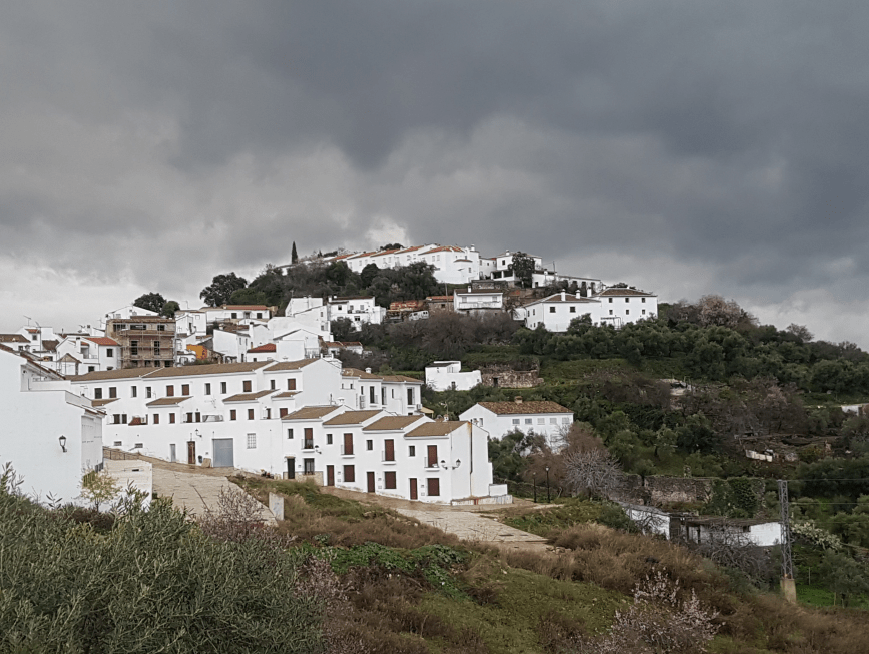
Your stay here will provide you with memories and skills you will never forget! Here is a working document with outings and their practicalities and prices: Outings and Activities
We have an alberca on the project site which you are welcome to take a dip in. It is filled from a natural spring where we collect our water to drink. The stored water from the ’pool’ is used for the horses and to irrigate the land. It was probably built by the Arabs more than 500 years ago. Atajate is more than 1000 years old.
If you enjoy hiking, there are many routes from Atajate towards other villages, which would have been the trade routes to travel on foot or with a loaded mule before the roads were built. They are very pretty with views over the mountains. It would take approximately two hours to hike to the closest river, and there are spectacular views along that track.

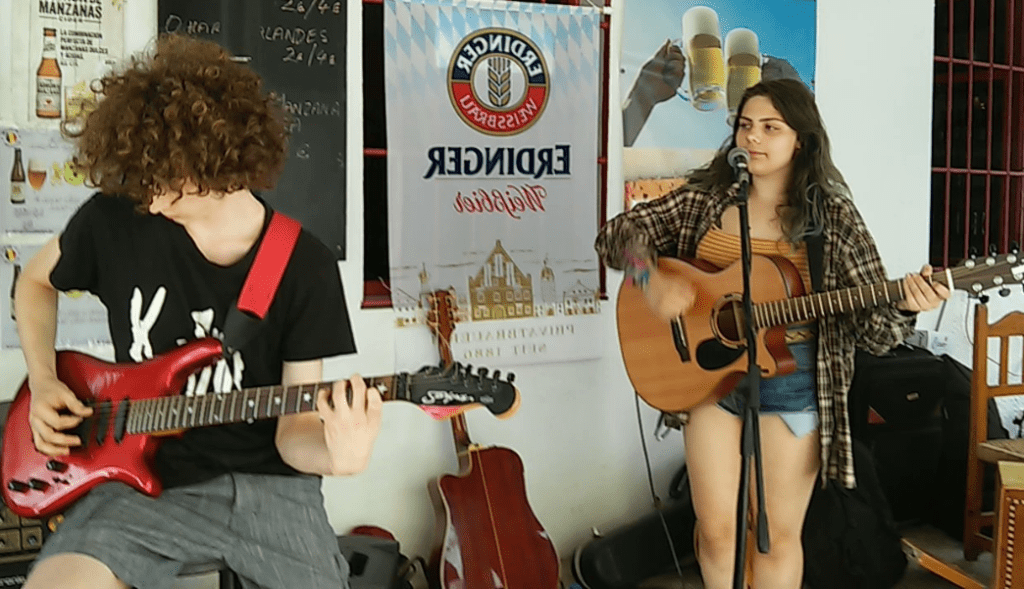
As well as those featuring nature and horses, there are festivals and parties that take place in all the villages. The big water fight in Atajate is in August; there is a German beer festival in Jimera de Libar in October and mushroom festivals in November. In summer there are music and horse festivals, foam parties and more! The beautiful local ‘white villages’ vary from 2000 inhabitants down to a population of less than 200 and are well worth a visit. Atajate has an outdoor public pool which is open during July and August.
Please note during the weekend of around the 15th of August is when Atajate has their three day-all night fiesta. It will be more noisy and crowded than usual, including during the night. It can be fun if you want to join in though!
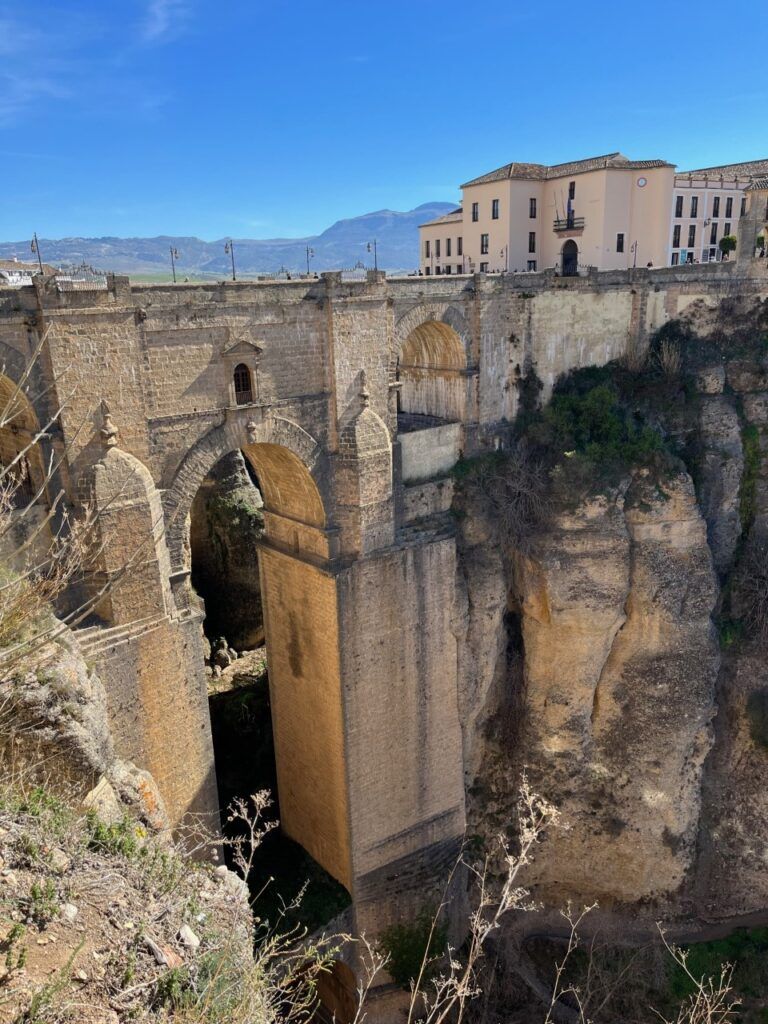
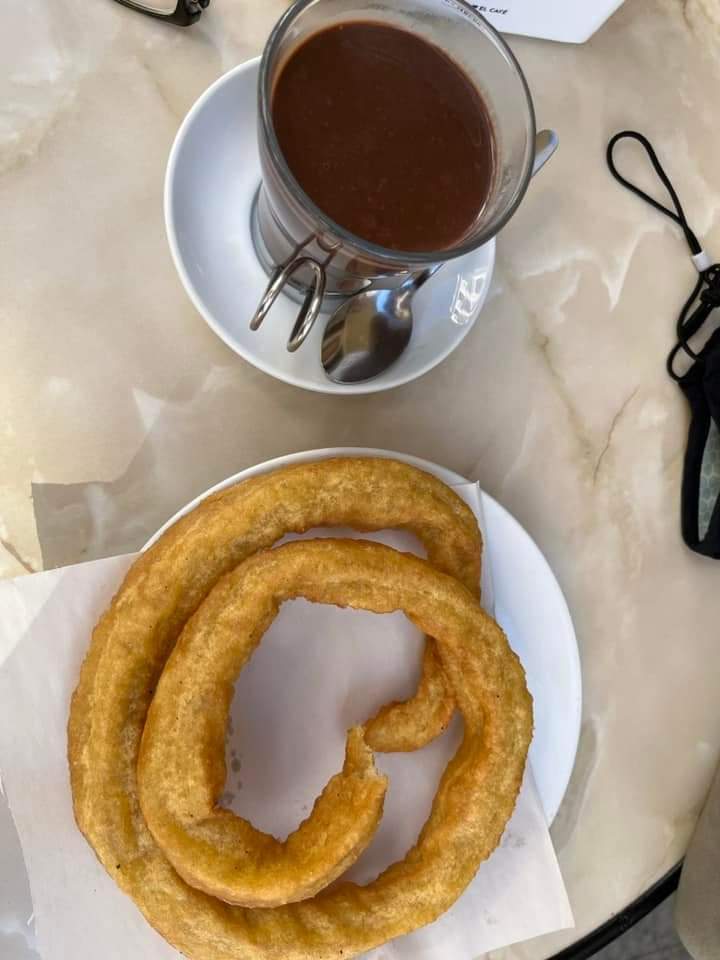
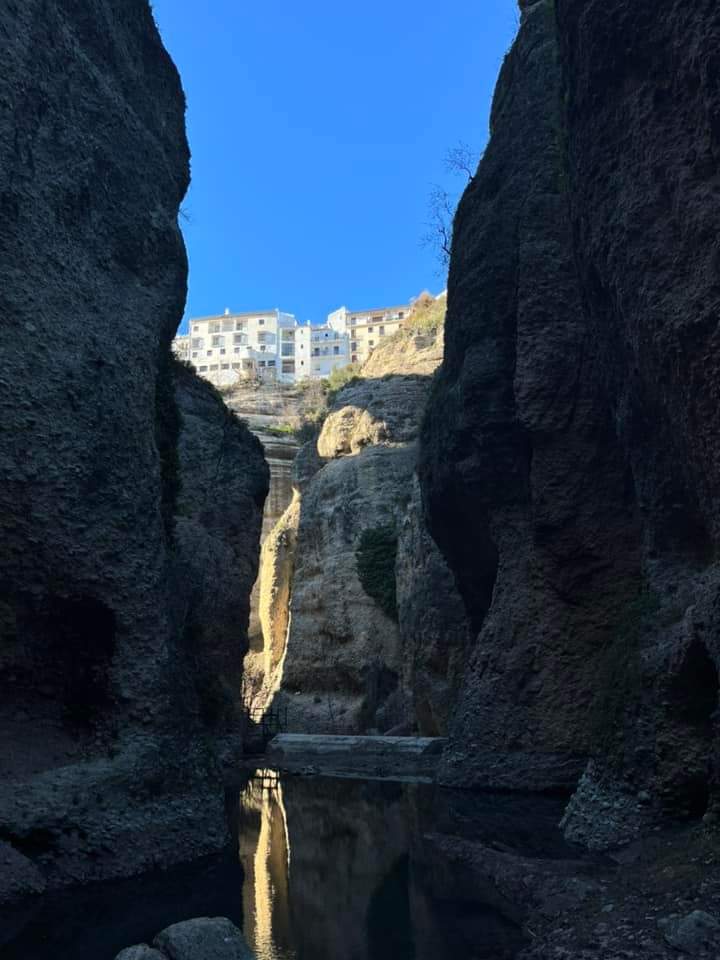
As well as the villages, there are towns to visit. Ronda is around 25km away and is on a main coast to city train route. It boasts a spectacular viaduct as well as many other historic sites and a variety of shops. After exploring these, the huge variety of cafes and bars will offer welcome refreshment. There is a bus going to Ronda from Atajate once a day, Monday to Friday.
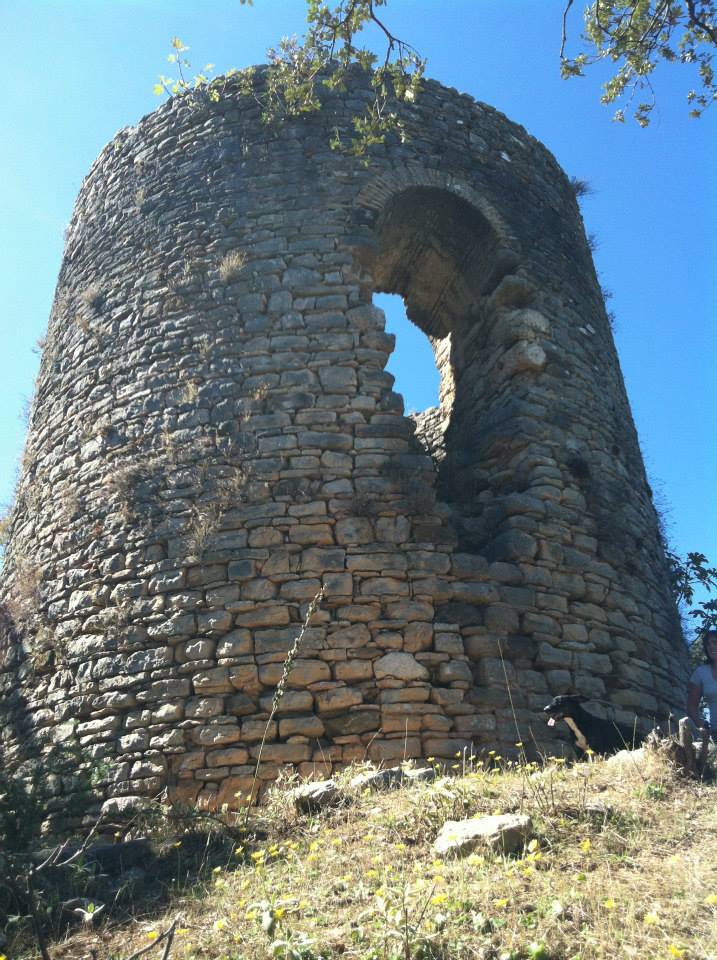

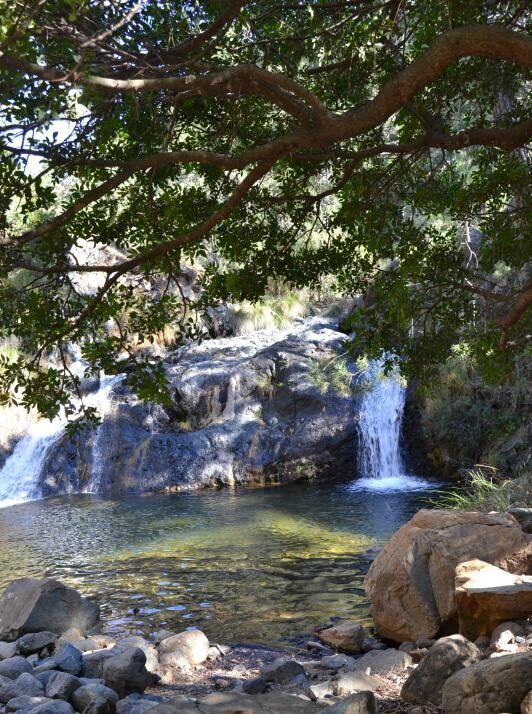
If, however, you prefer a break from civilisation then you will be in your element. The surrounding mountains, forests and river are beautiful, peaceful and watched over by soaring eagles. Close by there are natural sites to visit such as the Canyon of the Vultures. There are guided walks to vast caves with ancient cave paintings. A Pa lo-Christian church is tucked away just outside the village of Cortes de la Frontera, and an Arab tower is hidden in the countryside with not a tourist in sight. If you don’t have your own car we can get a quote for these trips as they are off the beaten track!
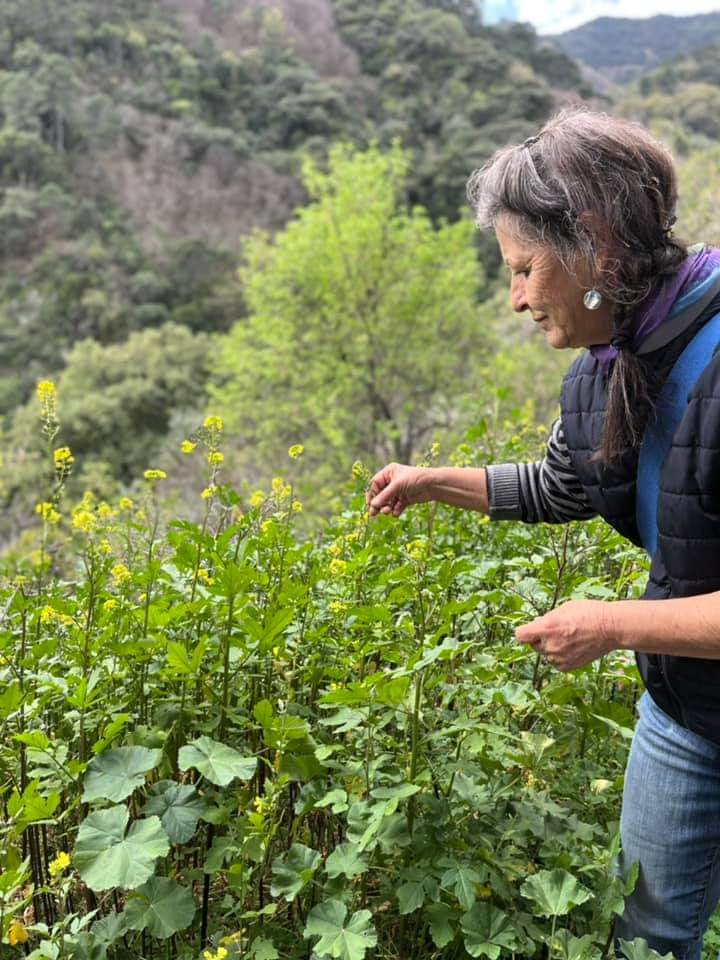
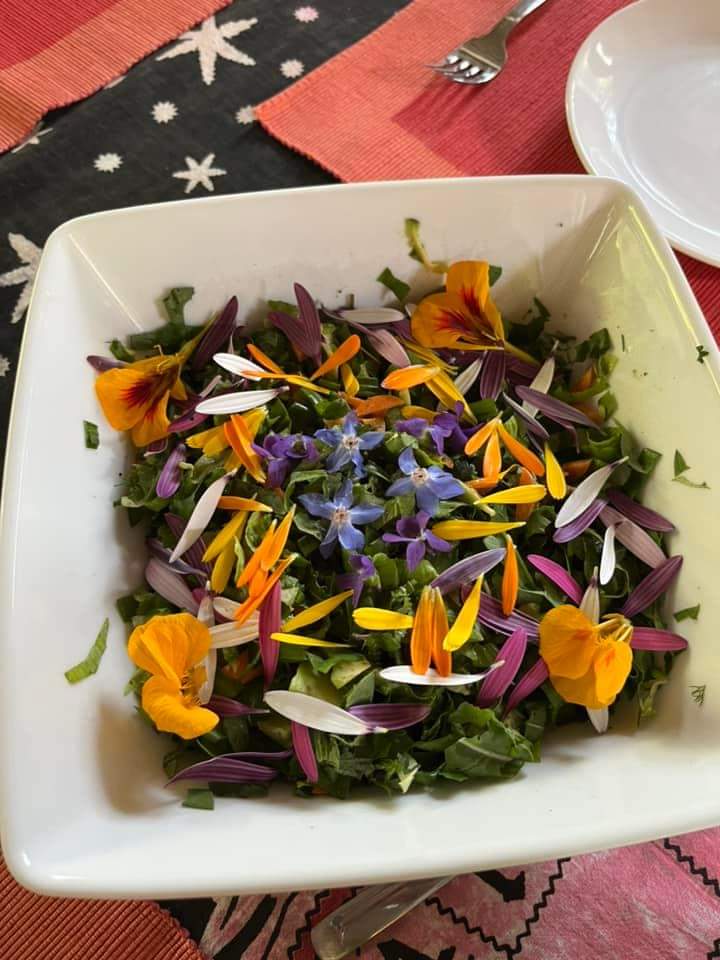
Ely Lozano Rios has written various books about the use of culenary and medicinal plants that grow in the area. In springtime she hosts workshops on making essencial oils and foraging for herbs. These are very interesting and we are happy to give you more information should you wish to book a place.

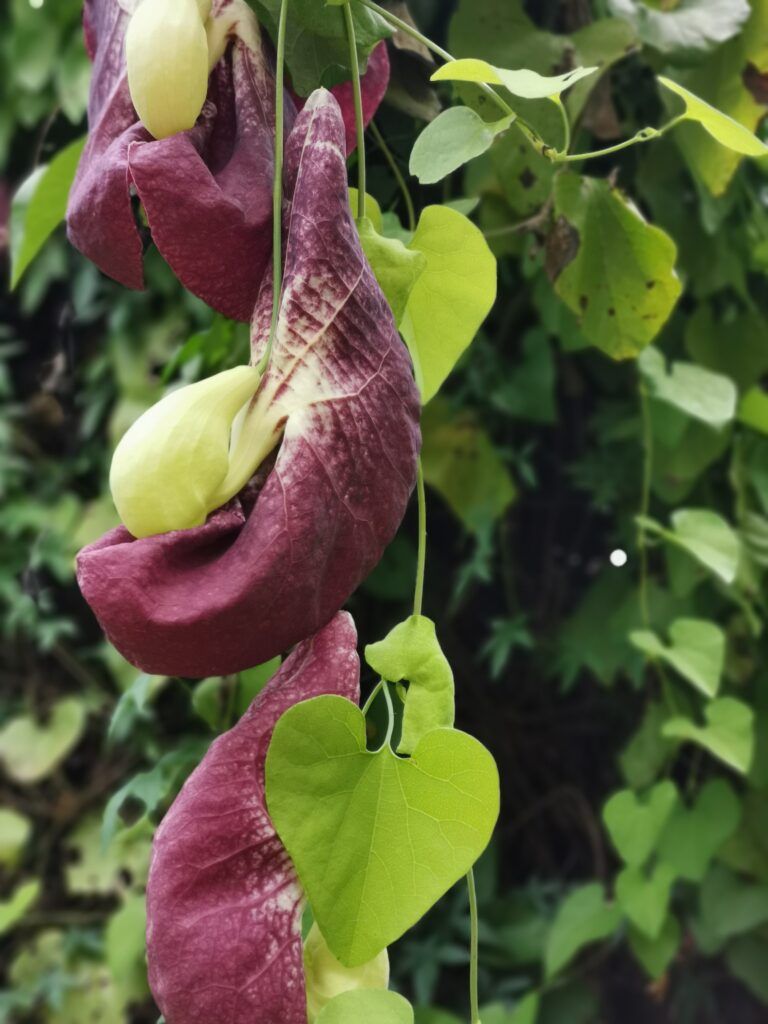
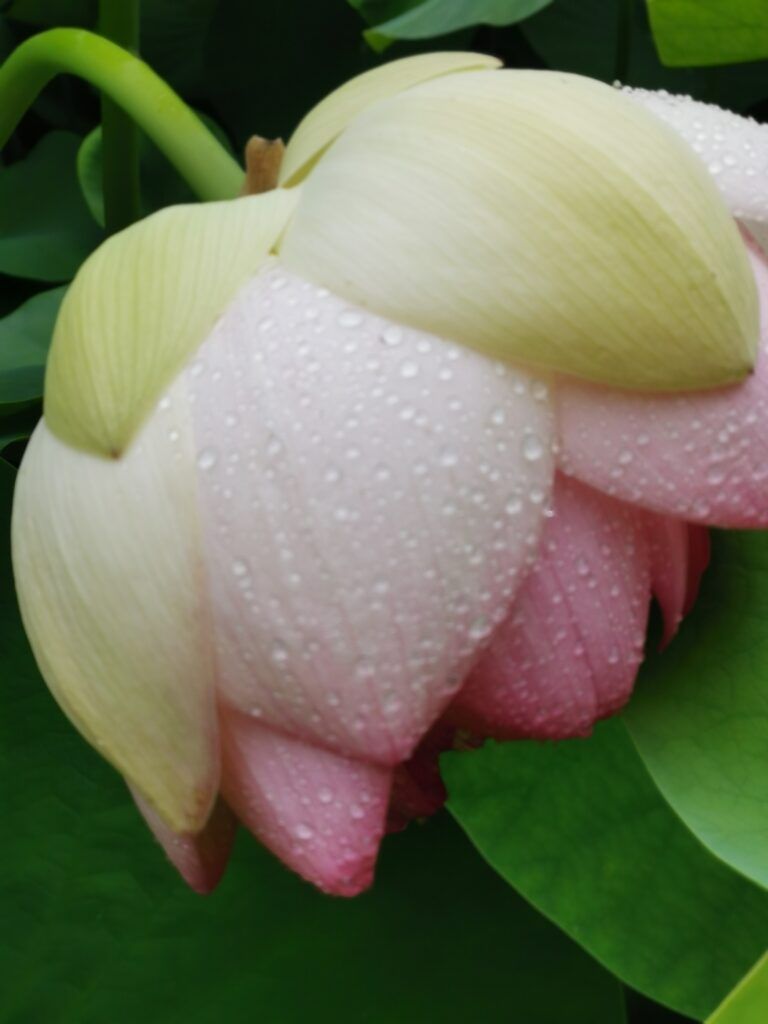
The beach is approximately 1½ hours’ drive away. In Málaga there are museums and stunning botanical gardens.
Day trips can be arranged on your days off. Some closer activities may be possible on work days as you usually only need to be onsite for five hours, but this is flexible. In summer, bear in mind it is pretty much impossible to do strenuous activities between the hours of 12pm and 6pm
Transport: You can hire a car from Málaga, or there is a bus leaving every weekday morning from Atajate to Ronda, and returning in the afternoon. From Ronda there are regular buses to all major cities and many smaller villages. It is also possible to hire a driver locally as a taxi service as some points of interest are off the beaten track and not accessible by public transport. If you would like more information or a quote, please ask.
Winter months: December, January, and February
Temperatures can drop to close to freezing at night but it rarely snows. You should be prepared with warm layers and waterproofs. Even when we have a rainy week the sky's still blue for most of the day. Be prepared for mud.
Spring months: March, April, and May
This time of year is very beautiful as we get some greenery because of the rain. There are also many flowers, and butterflies and, it can also be quite warm and sunny at midday.
Summer months: June, July, and August
These are the hottest months and very dry with no rain at all. Be aware that temperatures can reach 45 degrees, and work needs to be started very early at day-break (or before) and continued in the evening, finishing and eating late. We recommend taking a siesta!
Autumn months: September, October and November
These can be pleasant months to work in as the temperature hasn't dropped a lot yet, but we no longer need to escape the heat for most of the day. It can be a good time if you enjoy hiking.
Suitable clothing that may get ripped or stained
Warm clothes, waterproofs and long rubber boots for winter months
Gloves for working
Strong working/walking boots
A refillable drinking/water bottle
Sun cream & sun hat in the summer months
Indoor shoes or slippers
Phone charger/EU adapters
Pool towel if you plan on using it or going to the beach
A warmer layer ‘just in case’ early summer mornings
- Airport
- Public transport
- Driving
- Airport collection
- Journey time
Our closest airport is Malaga.
Public transport may be infrequent but it is very easy to use and reliable. Normally pre-booking is not necessary.
If you wish to use public transport, first you must take the small bus or train from the airport to the city of Málaga – Maria Zambrano Station, which is a short journey and runs regularly. Then you take a bus or train to Ronda where we can collect you for 25€, or if you arrive in Ronda on time there is a bus that leaves around 4:15pm to Atajate on weekdays.
You will be able to get from Málaga to Atajate for under 20€ by public transport.
We recommend that your arrival flight is in the morning or early afternoon if you want to get a bus, and that your departure flight is not before midday.
If your flight times do not fit into the public transport times you can either choose another form of arrival, or stay in Málaga for a night.
You can find a train time table here. Bus times change monthly and there is no website. They run from approximately 8am to 9pm weekdays from Málaga to Ronda, and approximately 9am to 6/8pm weekends. If you need to know the times before booking your flight you can ring DAMAS ±34 902 114 492, or ask us and we’ll do it for you.
I advise not to book the bus in advance as there is always space, and it allows for flexibility. Just take the bus from the airport to the main Maria Zambrano station in Malaga. Then take the bus that goes to Ronda, but NOT the one that passes Marbella, as it is a longer journey. Normally the company DAMAS has the best options. When you get off at the station in Ronda, it’s from the same station you get the next bus to Atajate.
There are less buses over lunch time from Málaga, so I advise you to get the first bus you can. If you need to stop to eat, if you have to wait before Atajate, then there’s lots of places in Ronda.
Otherwise we can look into travel options after you have your flight booked.
If you are arriving with your own car or hiring a car from Málaga airport you will come to the village of Atajate 29494. You can get in touch with us beforehand for the accommodation address.
You can either pre-book a taxi or take one from the airport without booking which will cost somewhere in the region of 160€.
Alternatively and more economically we can arrange a collection by car which is very popular and will take you door to door. This can be arranged by email after booking and will be someone connected to the association or a trusted local person. We ask that you pay them directly in cash upon arrival, and not include it in your donation to the association. We can offer this at 120€ for one direction, and 80€ for return.
It takes approximately two hours to get to Atajate from Málaga airport, and it is usually possible to stop in Ronda on your way should you need an ATM or anything from a shop – just ask.
- Requirements
- What is & isn´t included
- Accommodation & WiFi
- Food & cooking
- Project site conditions
- Freetime activities
- Weather
- Packing list
- Getting here
In order to join the programme you need to be at least 10 years old on the programme start date and have an accompanying adult/s. If you are aged 14 – 18 years you must have parental permission, and the parents must be confident in the applicant’s ability as the volunteers live independently and the hosts do not take parental responsibility.
Language Skills
You need to speak English (basic level) or Spanish (basic level). Communication day to day and around the village is never a problem, but some of the training within the programmes requires a lot of either English or Spanish. It is fine if your knowledge of those languages is basic, but your learning may be restricted.
Other Skills
You are not required to have previous experience with horses or farm work.
We are flexible and do like to make this opportunity available for everyone as we enjoy seeing people learn and develop. If you are an experienced horse person, then you will already know that you can never finish learning and that the horse is the best teacher of which we have plenty.
Work is often physically hard and although we welcome people from all experiences. A hard-working attitude fits best here. Please let us know before booking if you have specific needs or disabilities so we can discuss the possibilities.
You will be joining a family with animals and children. It is essential that you like these as they all join in every area of our lives!
Time Commitment
We are always looking for helping hands whether with general care and maintenance; helping us keep our horses happy; or helping with promotion – there shall be something to suit your skills. Work hours normally are up to 25 hours per week, which is typically split morning and night and over five or six days – but this is flexible.
Included in the programme:
- Our organisation will provide accommodation for volunteers.
- We will provide volunteer support and orientation in the form of written information in a welcome pack and documents which we will send after booking; verbal, phone, email, or WhatsApp support.
- You shall receive training plus a huge learning potential in taking part in this programme, including practical opportunities and possibilities to gain many more experiences living and working in this beautiful place.
- We have a small library of resources at your disposal in the volunteer accommodation, which include specialist books, and printed handouts and information around our project focus.
- You can be provided with educational material to take home.
- We can send a certificate of internship after completion of your placement, but please let us know how we can best tailor this to your group.
- Towels and linen (apart from beach/pool towel.)
- There is limited internet access available.
Not included in the programme:
Flights, transport, days out, meals, eating and drinking in bars are your own financial responsibility and not included in the programme.
We recommend you provide your own personal accident insurance suitable for the type of activities you will be taking part in.
Arrival to the project is not covered by the association, but we can help you plan your trip, and airport transfer can be arranged for a fee to be paid locally, or public transport can be used.
Please bring a pool or beach towel if you are planning on going.
Accommodation
Volunteers either sleep in a shared village house or the hostel which we rent and you may share with other volunteers. Your programme hosts, Clare and Chico live on the project site which is a 15 minute walk away from the accommodation.
The accommodation may be more basic than you are used to, but you should have all you need.
There are beds, bedding, towels, a bathroom with a modern toilet, shower and/or bath, and running hot and cold water.
In some of the accommodations there is a living room with either an open fire or electric heating in the winter months, and a kitchen with a stove top and fridge. However, the electricity is not very powerful so it may cut out for a few moments if too many appliances are being used at the same time, but comes back on automatically.
These sleep one or two people per room. Towels and linen are provided, but please bring a pool towel if you plan on using it.
No smoking in the accommodation.
Group size A: 1 – 7 people
Please check out our Equine Sanctuary Supporter programme or our Sustainable Sanctuary Programme.
Group size B: 8 – 22 people
You will all have your own bed, but some rooms may be shared with twin beds.
Please note all other discounts for group sizes are already included within our calculations, hence this Group Experience programme which is approximately half the price to that of the programmes available for individual travellers. We can only give further discounts for larger groups, or in very special circumstances as we are a non-profit organisation relying on donations to run the programmes and to carry out our work.
Group size C: 23 – 32 people
The accommodation is the same as in the description, however some or many people may need to share a double bed.
All accommodation availability is pending previous bookings and a deposit would be needed to secure the accommodation should you wish to go ahead with the booking.
Phone & internet
There is Wi-Fi available in the main volunteer shared house. There is free Wi-Fi available in the bar/café just a minute’s walk away from the accommodation, which is also where the overflow accommodation is situated. There is also a free internet building in the village, but the opening times are a bit unpredictable. If you want to use your own phone/internet service, then I suggest checking with your provider before you leave so it can be set for use here. If you arrange unlimited data and set to roaming then you should be able to pick up a good signal. You can then use your phone as a hotspot if you bring a laptop. Vodafone has a good signal but we cannot vouch for the availability of service/coverage/signal of other companies in the village. Some visitors have been unable to get a signal in the accommodation but others have, so if it is vital to you, prepare before you come.
Food and cooking
Volunteers are usually back in the village for lunchtime unless they prefer to cook in the outdoor kitchen onsite.
There are also bars in the village where you can eat which are very reasonable in price.
You would do all your grocery shopping and cooking yourselves, and food is not included in the price of the Group Experience programme. The closest supermarket you can get a bus to on weekday mornings for a couple of euros, and back after midday, or use taxi service which is approximately 30€ each way, if you don’t have your own transport.
If you do need help with shopping or cooking then we can research locally if there are options.
We keep a recipe folder which contains some of our favourite meals which can be made from easy to find items if you are in need of inspiration.
Drinking Water
The tap water in the accommodation is drinkable, and there is also the option to bottle your own water from a natural source in the village.
s also flexible in warmer months. We often invite each other to eat together to get a taste of international cuisines! There are also bars where you can eat at your own expense.
Healthy vegetarian/vegan groceries for three meals per day is provided for volunteers to prepare their own meals. Cooking can be done in the apartment or in the on-site outdoor kitchen, where we often eat lunch together when the weather is nice.
There is no shop in the village so we do a weekly supermarket shop from an extensive, but predetermined list which is given to the volunteers each week to complete, depending on what you need. If you would like items that aren’t listed, we can get them for you but at your own expense as we operate on a limited budget. Bear in mind that items you eat often at home might be unavailable or more expensive here.
We try to be as sustainable and as ethical as possible so the list includes seasonally available fruit and vegetables. It does not include items containing palm oil, meat or fish, and we avoid processed food. Meals including these things are available in the local bars so you can buy them there if you wish. We won’t buy meat, even at your own expense, because some volunteers wouldn’t appreciate it being cooked in the shared kitchen and we have to respect this.
We keep a recipe folder which contains some of our favourite meals which can be made from the listed items if you are in need of inspiration. We provide coffee and teas, but soft drinks and juices are extra (although we are happy to buy oranges for juicing yourself).
Drinking Water
The tap water in the accommodation is drinkable, and there is also the option to bottle your own water from a natural source in the village. We do not provide bottled water but you can buy this yourself in the weekly grocery shop.
On the project site you must take your own water bottle which can be refilled from the natural source we have there. The main area of work is a little further down the land, so you may have to walk back up to the source to refill (especially in summer). Bear in mind this is not far, but it is a steep hill. You can also refill plastic bottles which we can provide to take down to refill, but someone will need to be responsible to change this each day.
On the project site
You must take your own water bottle which can be refilled from the natural source we have there. The main area of work is a little further down the land, so you may have to walk back up to the source to refill (especially in summer). Bear in mind this is not far, but it is a steep hill. You can also refill plastic bottles which we can provide to take down to refill, but someone will need to be responsible to change this each day.
There is no smoking on the project site due to fire risk.
The bathroom on the project site is in nature. This means that you can pee anywhere you like, and there are plenty of hidden spots. We have a compost toilet for solids. This is in the form of a wooden shed with a large wooden box and a toilet seat to sit on. Everything goes into this box then you throw some compostable material on top to cover it which is there beside the toilet. Any tissue and sanitary products go into the bin provided. The box is left aside covered when full, until it is composted. Then it is totally safe to be emptied onto the land (don’t worry, we don’t ask volunteers to do this!) – which is why you must only use it for solids or it would fill too fast and be impossible to move.
All volunteers and visitors are asked to refrain from touching the horses unless/until they are trained in this. There are very specific and important reasons for this request which we will be happy to share with you.
Other details such as start and finish times can be found in an information folder which we leave available in the accommodation, and encourage you to read before you start on the project.


Your stay here will provide you with memories and skills you will never forget! Here is a working document with outings and their practicalities and prices: Outings and Activities
We have an alberca on the project site which you are welcome to take a dip in. It is filled from a natural spring where we collect our water to drink. The stored water from the ’pool’ is used for the horses and to irrigate the land. It was probably built by the Arabs more than 500 years ago. Atajate is more than 1000 years old.
If you enjoy hiking, there are many routes from Atajate towards other villages, which would have been the trade routes to travel on foot or with a loaded mule before the roads were built. They are very pretty with views over the mountains. It would take approximately two hours to hike to the closest river, and there are spectacular views along that track.


As well as those featuring nature and horses, there are festivals and parties that take place in all the villages. The big water fight in Atajate is in August; there is a German beer festival in Jimera de Libar in October and mushroom festivals in November. In summer there are music and horse festivals, foam parties and more! The beautiful local ‘white villages’ vary from 2000 inhabitants down to a population of less than 200 and are well worth a visit. Atajate has an outdoor public pool which is open during July and August.
Please note during the weekend of around the 15th of August is when Atajate has their three day-all night fiesta. It will be more noisy and crowded than usual, including during the night. It can be fun if you want to join in though!



As well as the villages, there are towns to visit. Ronda is around 25km away and is on a main coast to city train route. It boasts a spectacular viaduct as well as many other historic sites and a variety of shops. After exploring these, the huge variety of cafes and bars will offer welcome refreshment. There is a bus going to Ronda from Atajate once a day, Monday to Friday.



If, however, you prefer a break from civilisation then you will be in your element. The surrounding mountains, forests and river are beautiful, peaceful and watched over by soaring eagles. Close by there are natural sites to visit such as the Canyon of the Vultures. There are guided walks to vast caves with ancient cave paintings. A Pa lo-Christian church is tucked away just outside the village of Cortes de la Frontera, and an Arab tower is hidden in the countryside with not a tourist in sight. If you don’t have your own car we can get a quote for these trips as they are off the beaten track!


Ely Lozano Rios has written various books about the use of culenary and medicinal plants that grow in the area. In springtime she hosts workshops on making essencial oils and foraging for herbs. These are very interesting and we are happy to give you more information should you wish to book a place.



The beach is approximately 1½ hours’ drive away. In Málaga there are museums and stunning botanical gardens.
Day trips can be arranged on your days off. Some closer activities may be possible on work days as you usually only need to be onsite for five hours, but this is flexible. In summer, bear in mind it is pretty much impossible to do strenuous activities between the hours of 12pm and 6pm
Transport: You can hire a car from Málaga, or there is a bus leaving every weekday morning from Atajate to Ronda, and returning in the afternoon. From Ronda there are regular buses to all major cities and many smaller villages. It is also possible to hire a driver locally as a taxi service as some points of interest are off the beaten track and not accessible by public transport. If you would like more information or a quote, please ask.
Winter months: December, January, and February
Temperatures can drop to close to freezing at night but it rarely snows. You should be prepared with warm layers and waterproofs. Even when we have a rainy week the sky's still blue for most of the day. Be prepared for mud.
Spring months: March, April, and May
This time of year is very beautiful as we get some greenery because of the rain. There are also many flowers, and butterflies and, it can also be quite warm and sunny at midday.
Summer months: June, July, and August
These are the hottest months and very dry with no rain at all. Be aware that temperatures can reach 45 degrees, and work needs to be started very early at day-break (or before) and continued in the evening, finishing and eating late. We recommend taking a siesta!
Autumn months: September, October and November
These can be pleasant months to work in as the temperature hasn't dropped a lot yet, but we no longer need to escape the heat for most of the day. It can be a good time if you enjoy hiking.
Suitable clothing that may get ripped or stained
Warm clothes, waterproofs and long rubber boots for winter months
Gloves for working
Strong working/walking boots
A refillable drinking/water bottle
Sun cream & sun hat in the summer months
Indoor shoes or slippers
Phone charger/EU adapters
Pool towel if you plan on using it or going to the beach
A warmer layer ‘just in case’ early summer mornings
- Airport
- Public transport
- Driving
- Airport collection
- Journey time
Our closest airport is Malaga.
Public transport may be infrequent but it is very easy to use and reliable. Normally pre-booking is not necessary.
If you wish to use public transport, first you must take the small bus or train from the airport to the city of Málaga – Maria Zambrano Station, which is a short journey and runs regularly. Then you take a bus or train to Ronda where we can collect you for 25€, or if you arrive in Ronda on time there is a bus that leaves around 4:15pm to Atajate on weekdays.
You will be able to get from Málaga to Atajate for under 20€ by public transport.
We recommend that your arrival flight is in the morning or early afternoon if you want to get a bus, and that your departure flight is not before midday.
If your flight times do not fit into the public transport times you can either choose another form of arrival, or stay in Málaga for a night.
You can find a train time table here. Bus times change monthly and there is no website. They run from approximately 8am to 9pm weekdays from Málaga to Ronda, and approximately 9am to 6/8pm weekends. If you need to know the times before booking your flight you can ring DAMAS ±34 902 114 492, or ask us and we’ll do it for you.
I advise not to book the bus in advance as there is always space, and it allows for flexibility. Just take the bus from the airport to the main Maria Zambrano station in Malaga. Then take the bus that goes to Ronda, but NOT the one that passes Marbella, as it is a longer journey. Normally the company DAMAS has the best options. When you get off at the station in Ronda, it’s from the same station you get the next bus to Atajate.
There are less buses over lunch time from Málaga, so I advise you to get the first bus you can. If you need to stop to eat, if you have to wait before Atajate, then there’s lots of places in Ronda.
Otherwise we can look into travel options after you have your flight booked.
If you are arriving with your own car or hiring a car from Málaga airport you will come to the village of Atajate 29494. You can get in touch with us beforehand for the accommodation address.
You can either pre-book a taxi or take one from the airport without booking which will cost somewhere in the region of 160€.
Alternatively and more economically we can arrange a collection by car which is very popular and will take you door to door. This can be arranged by email after booking and will be someone connected to the association or a trusted local person. We ask that you pay them directly in cash upon arrival, and not include it in your donation to the association. We can offer this at 120€ for one direction, and 80€ for return.
It takes approximately two hours to get to Atajate from Málaga airport, and it is usually possible to stop in Ronda on your way should you need an ATM or anything from a shop – just ask.
































